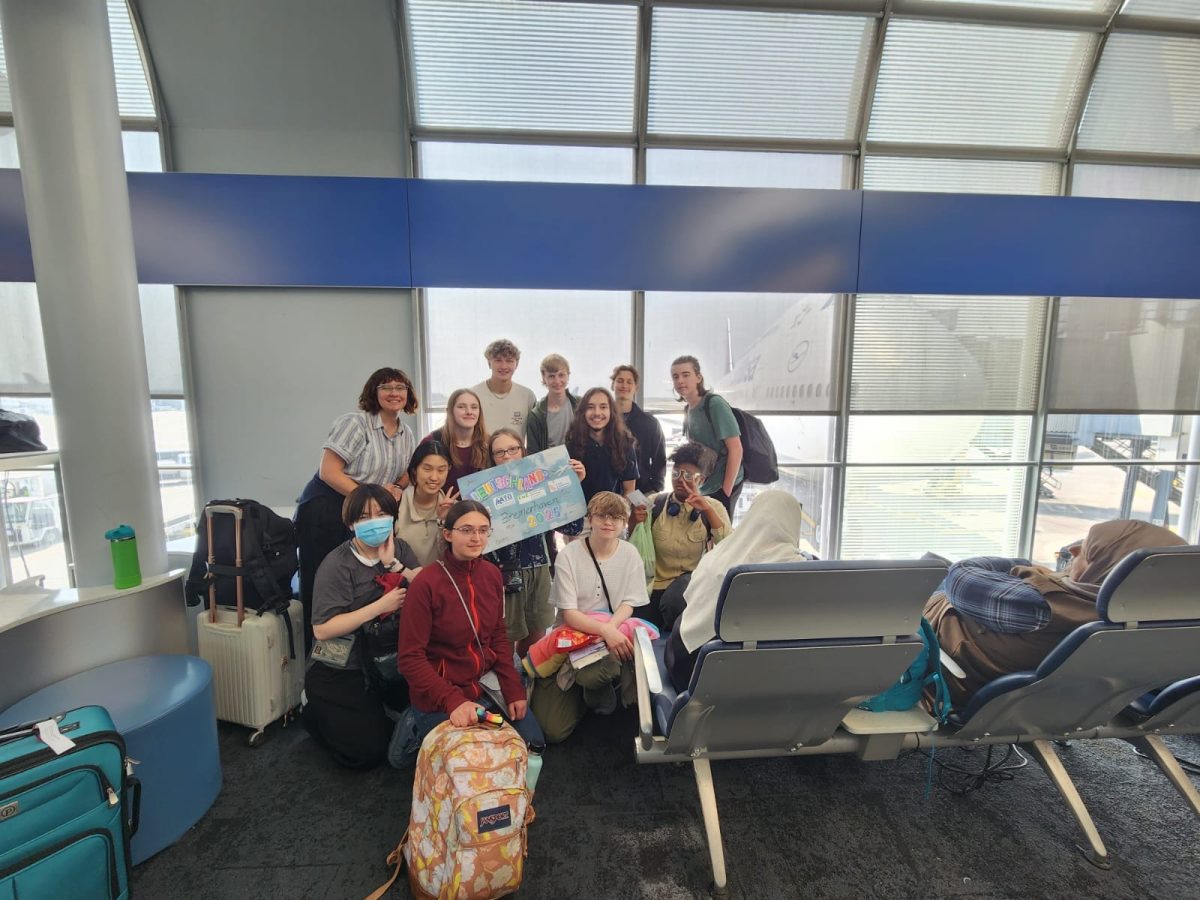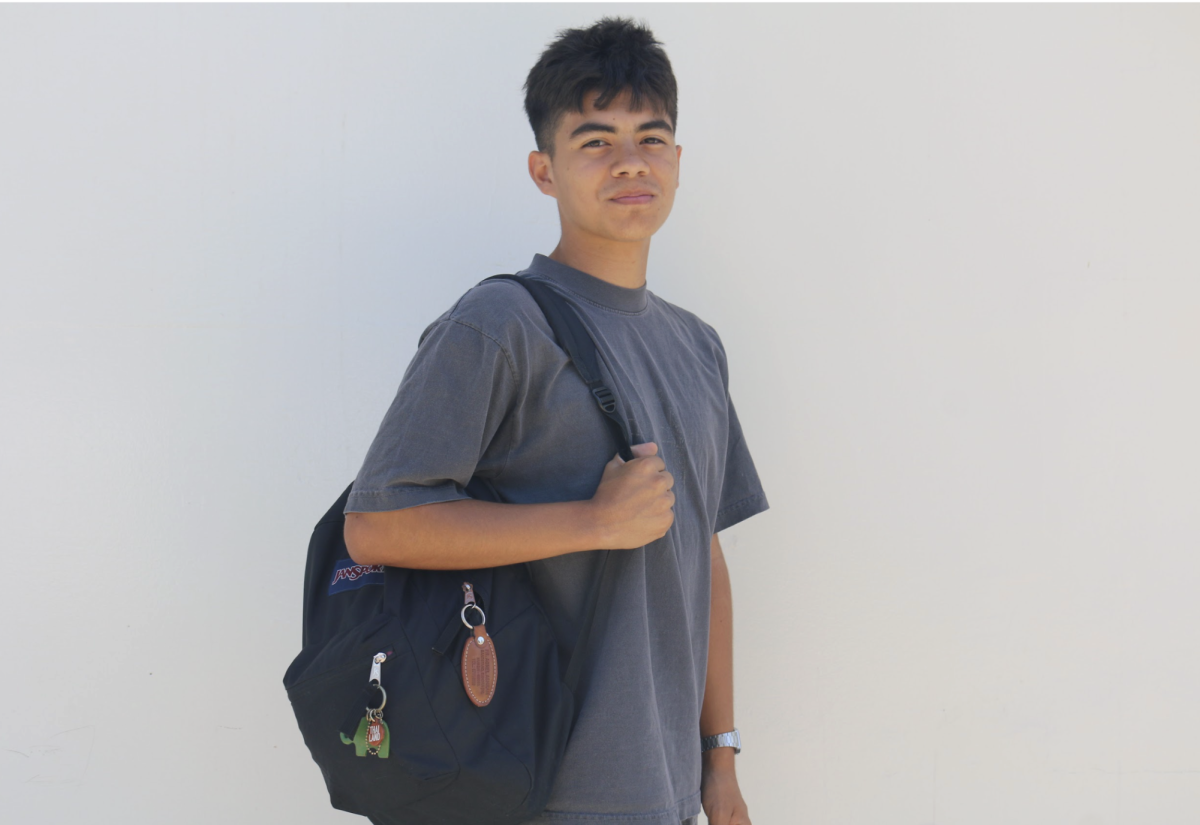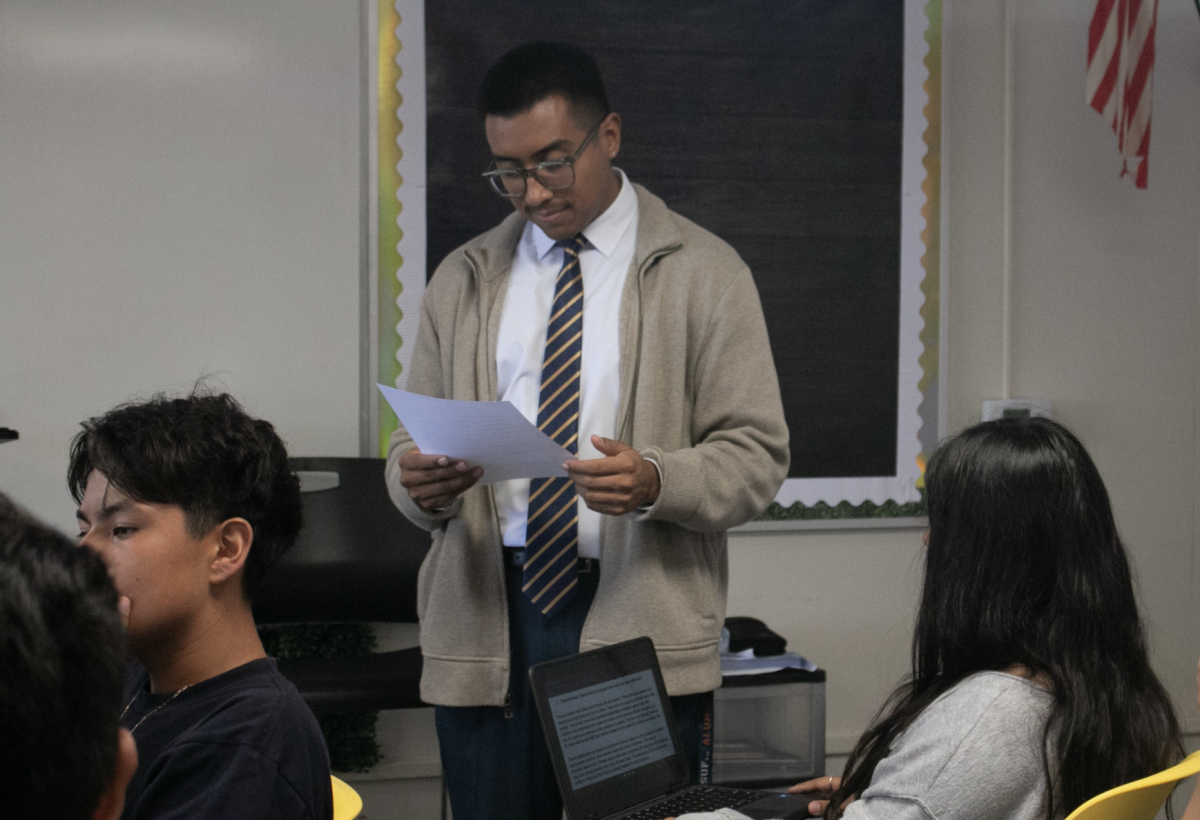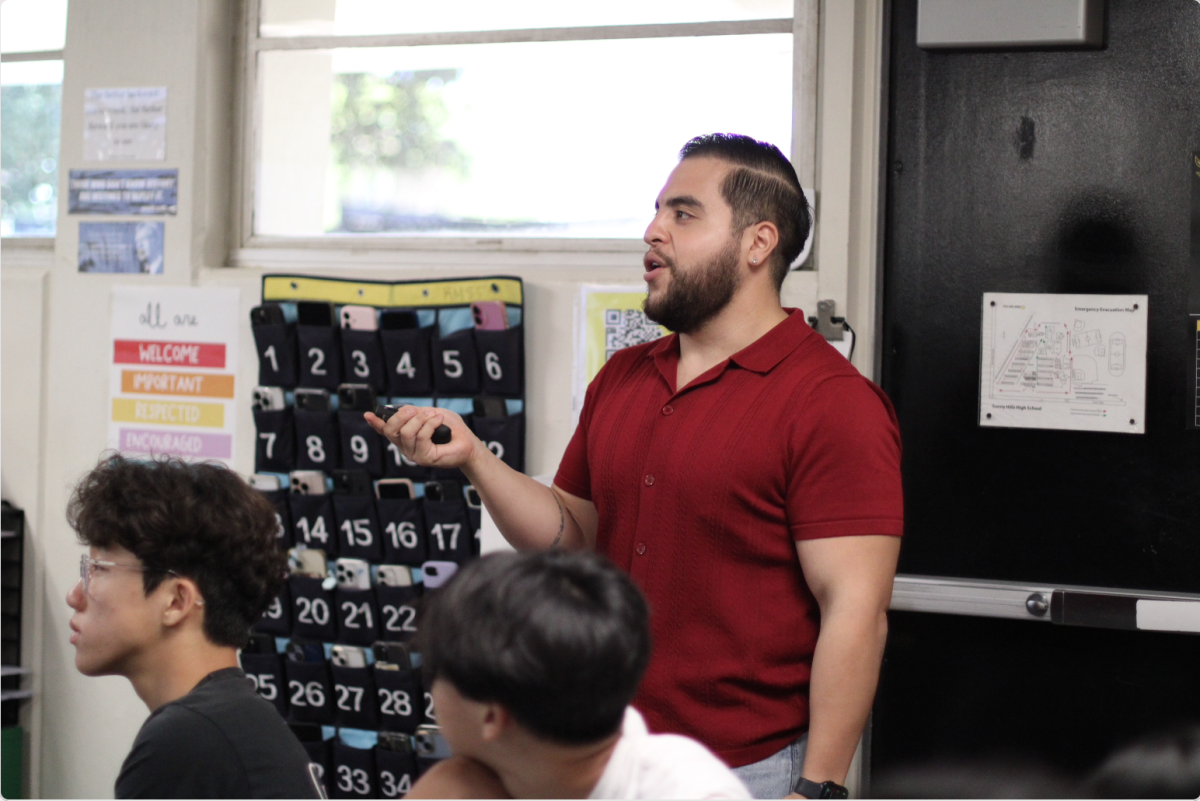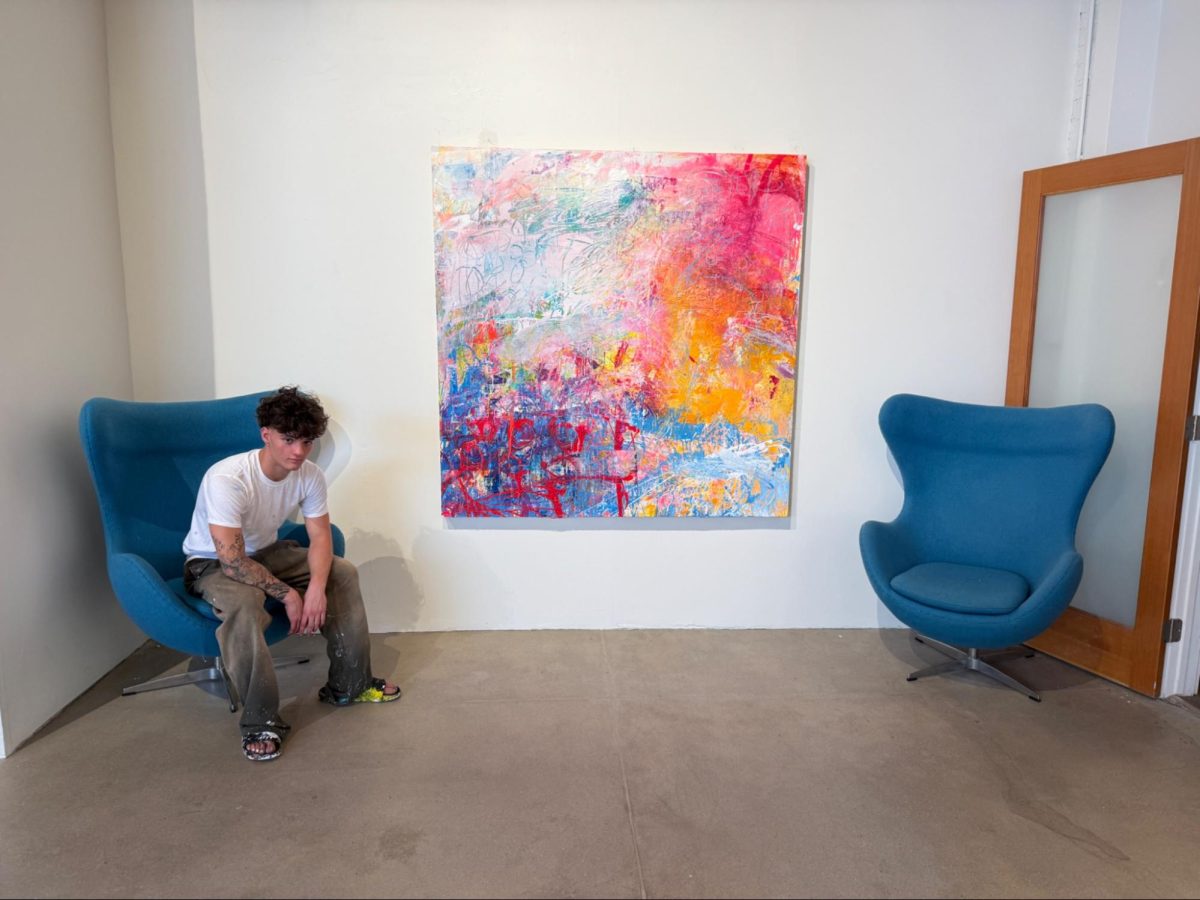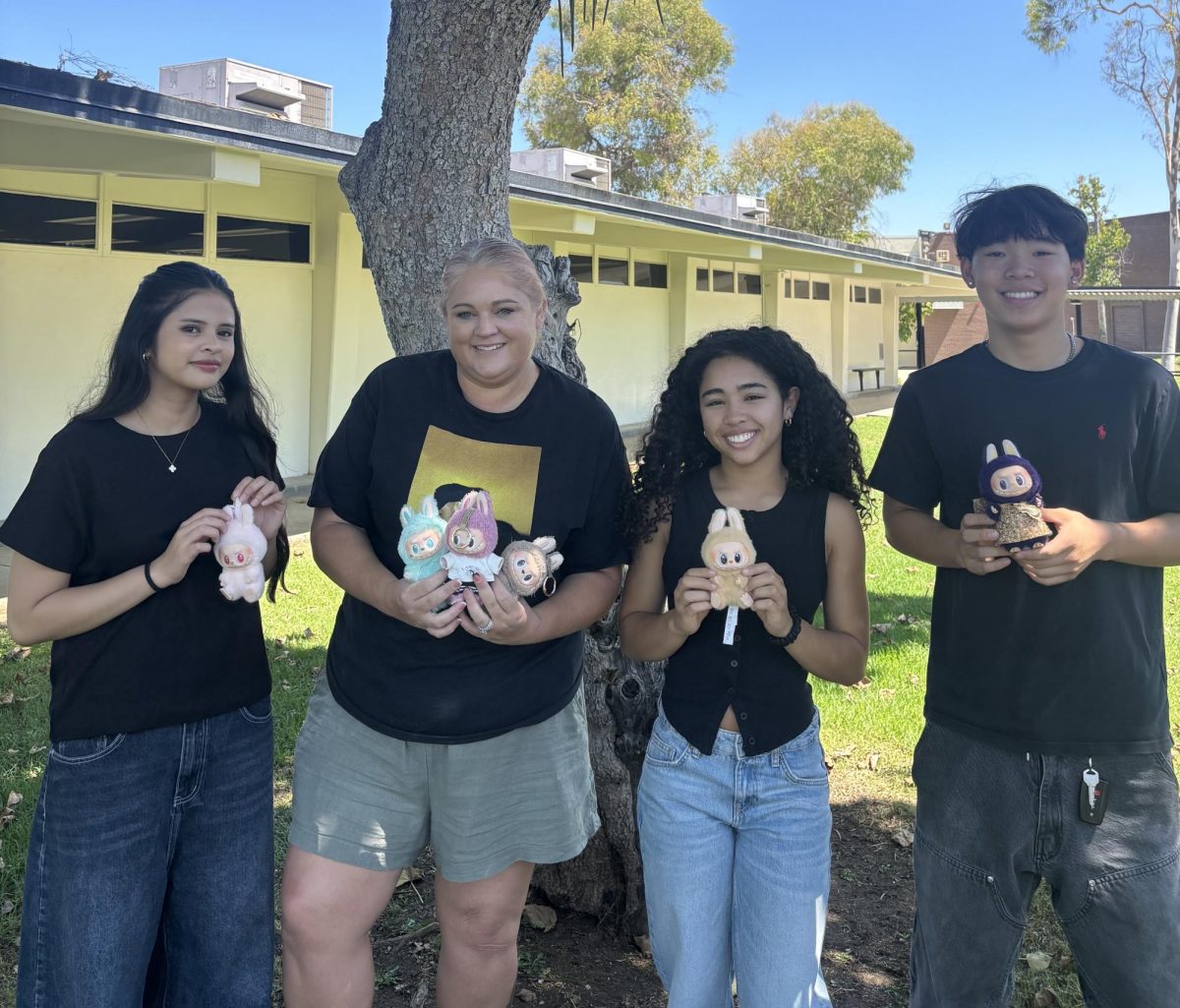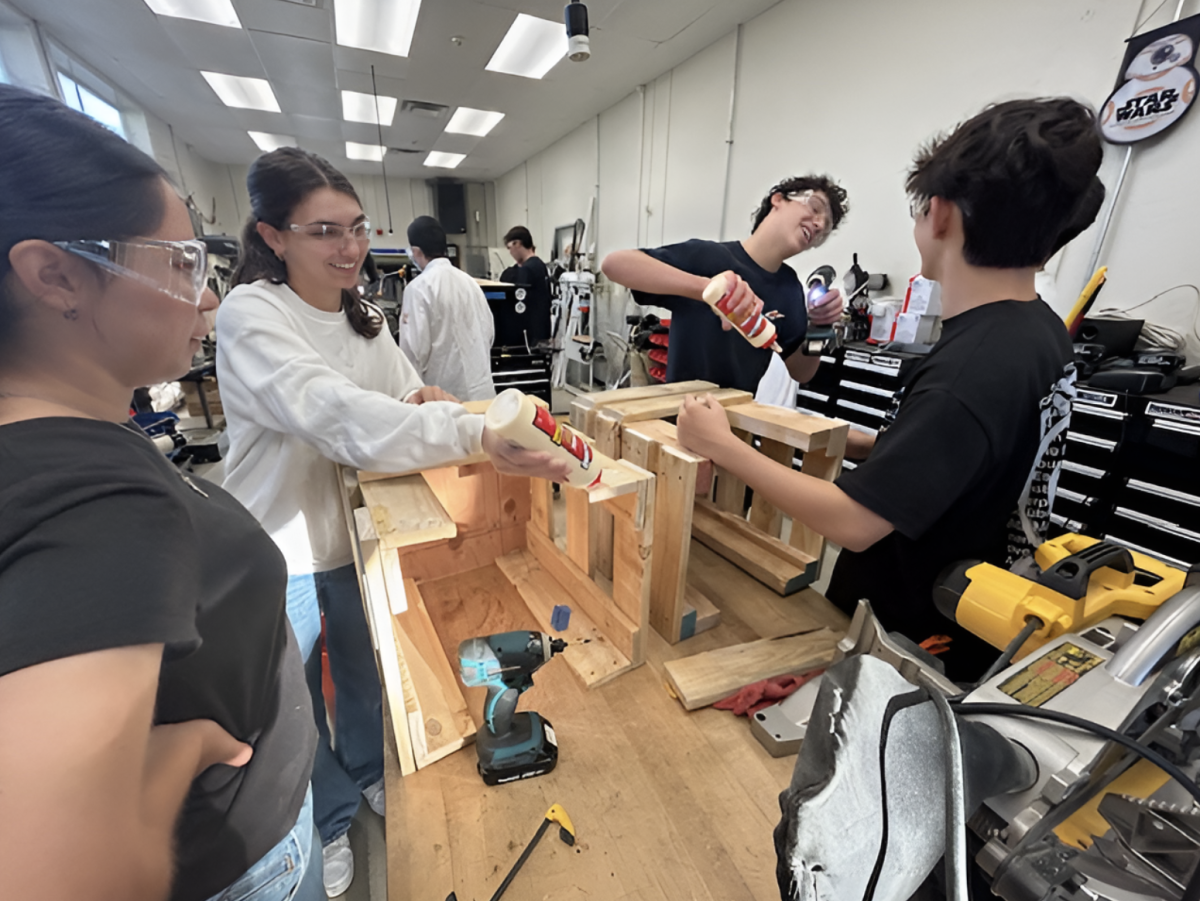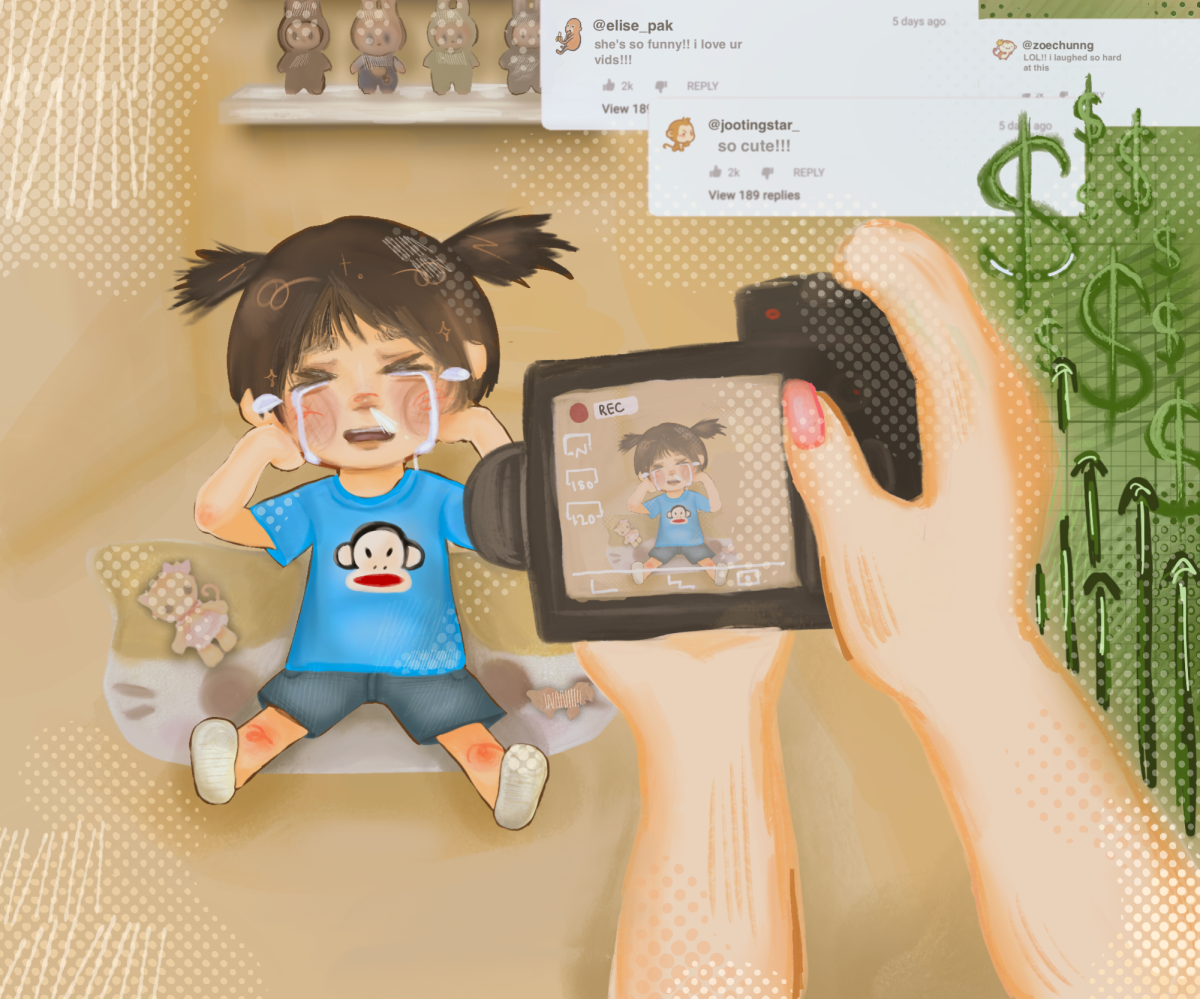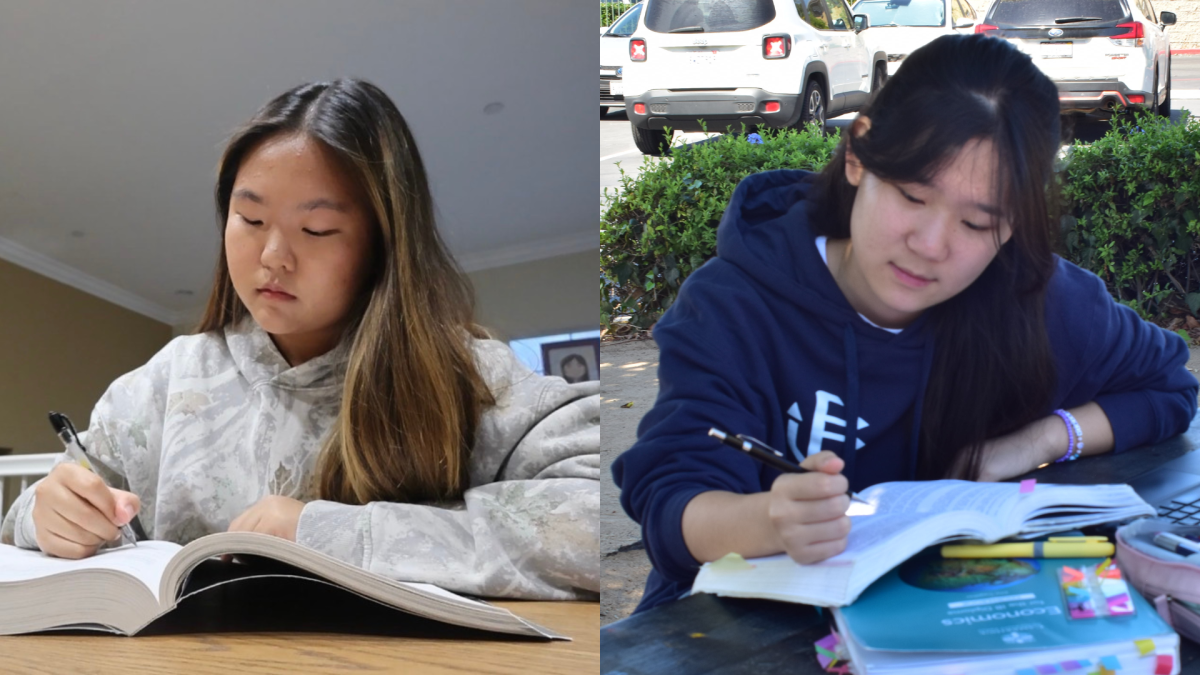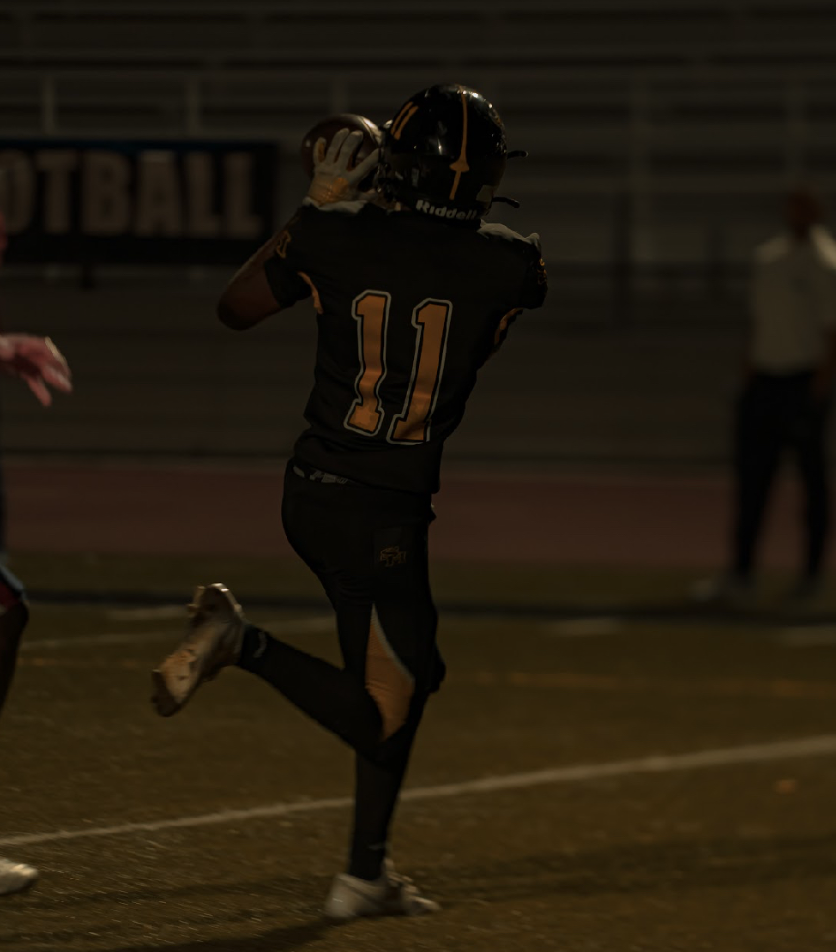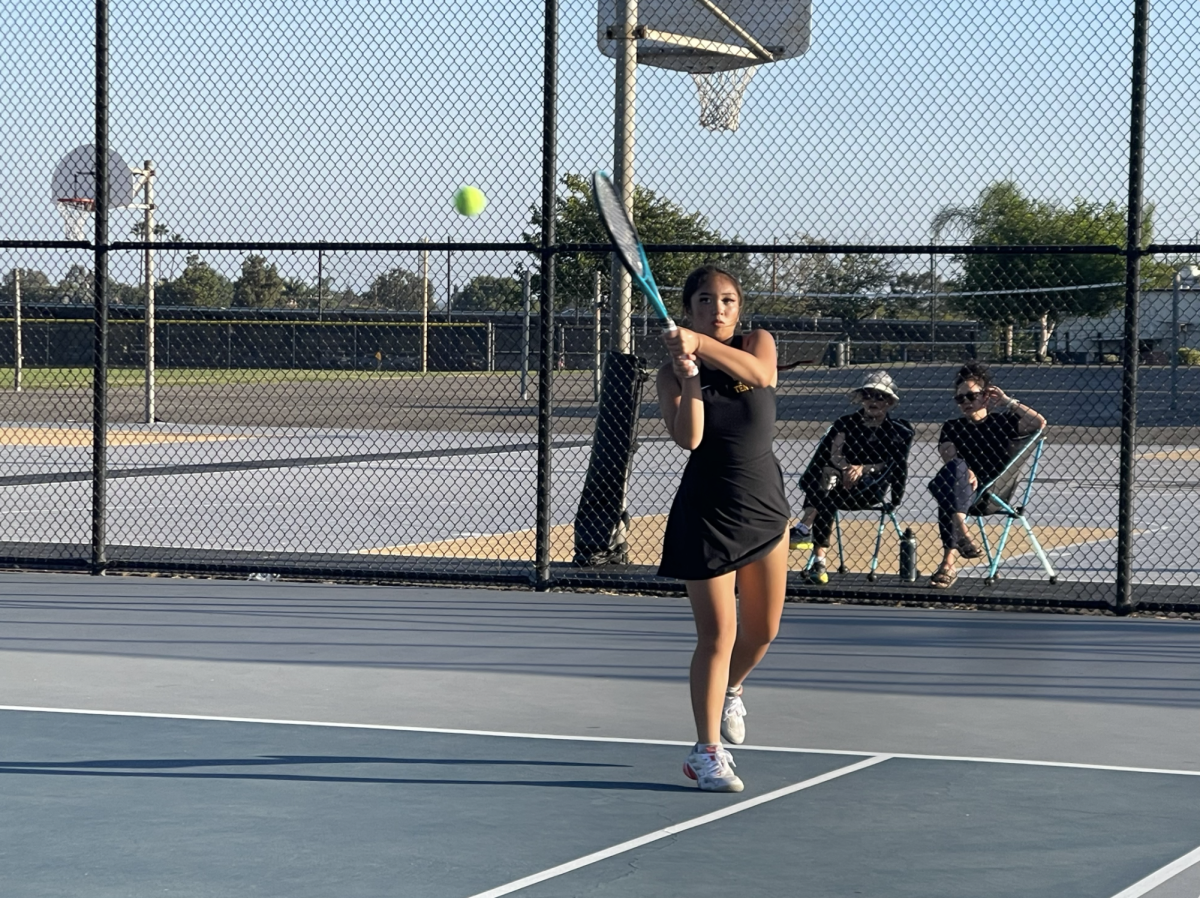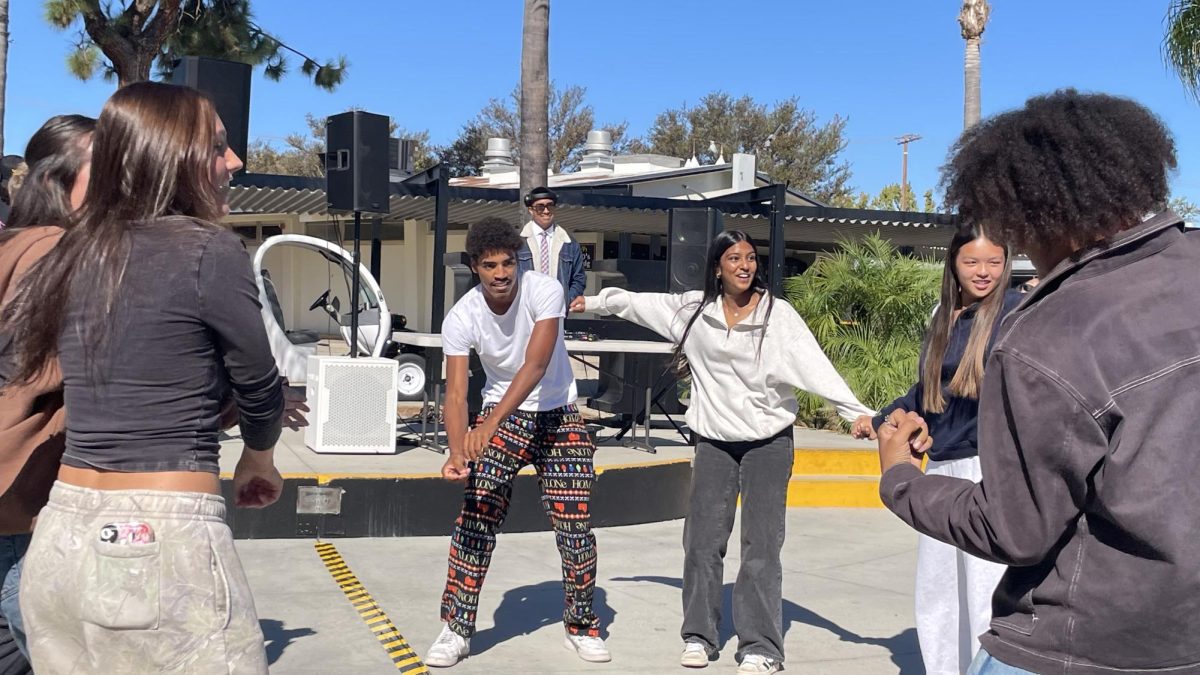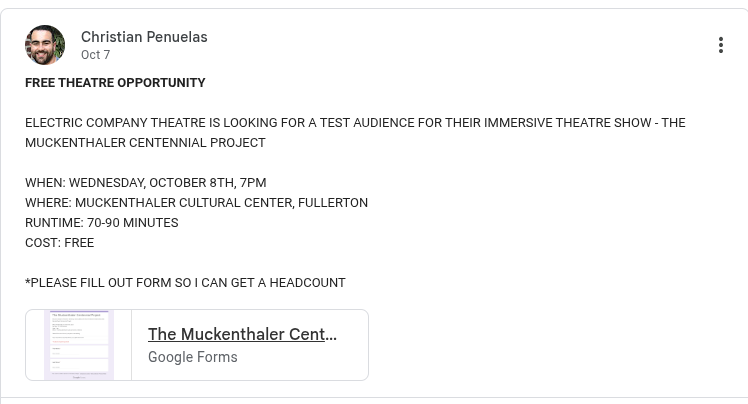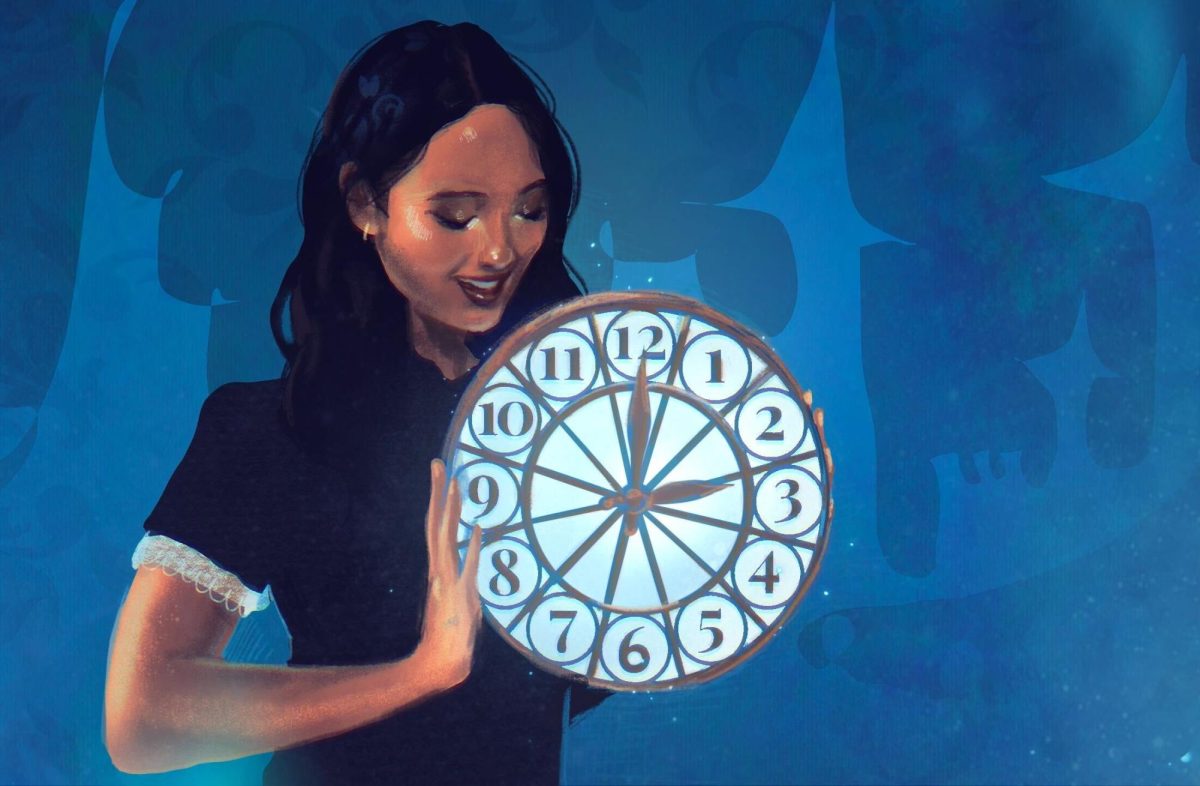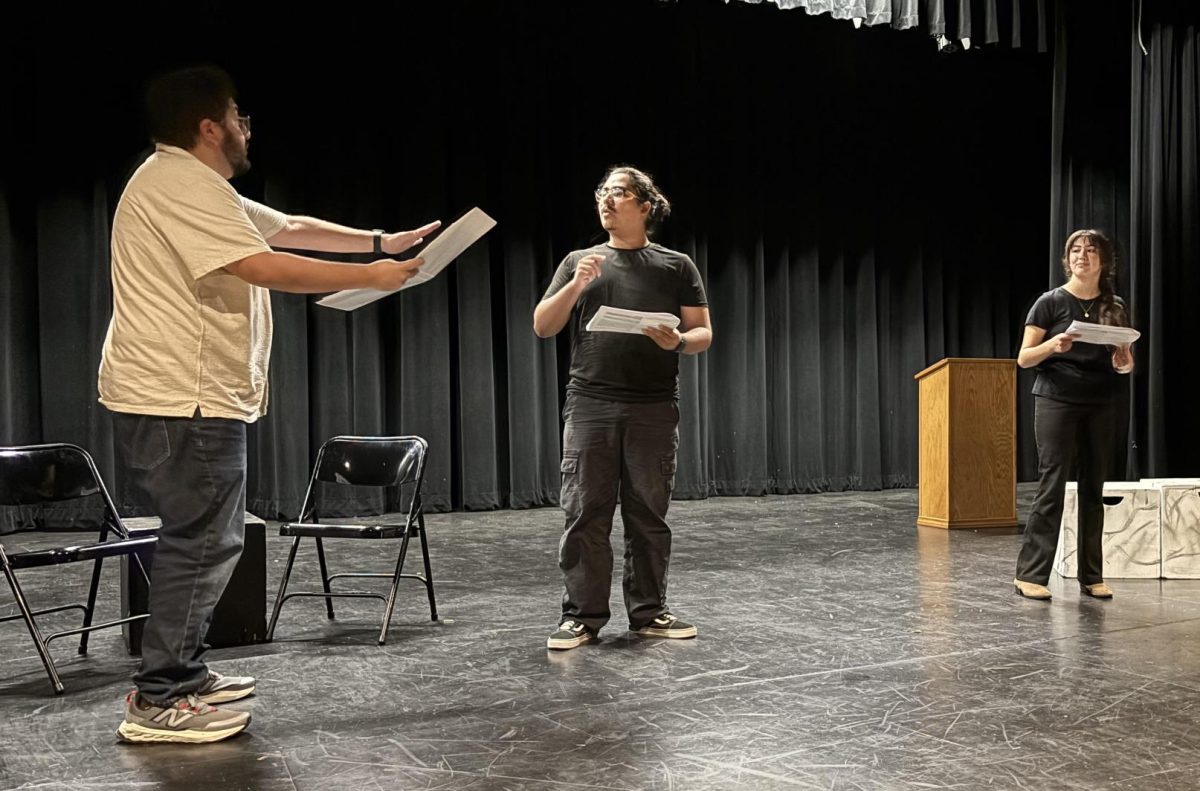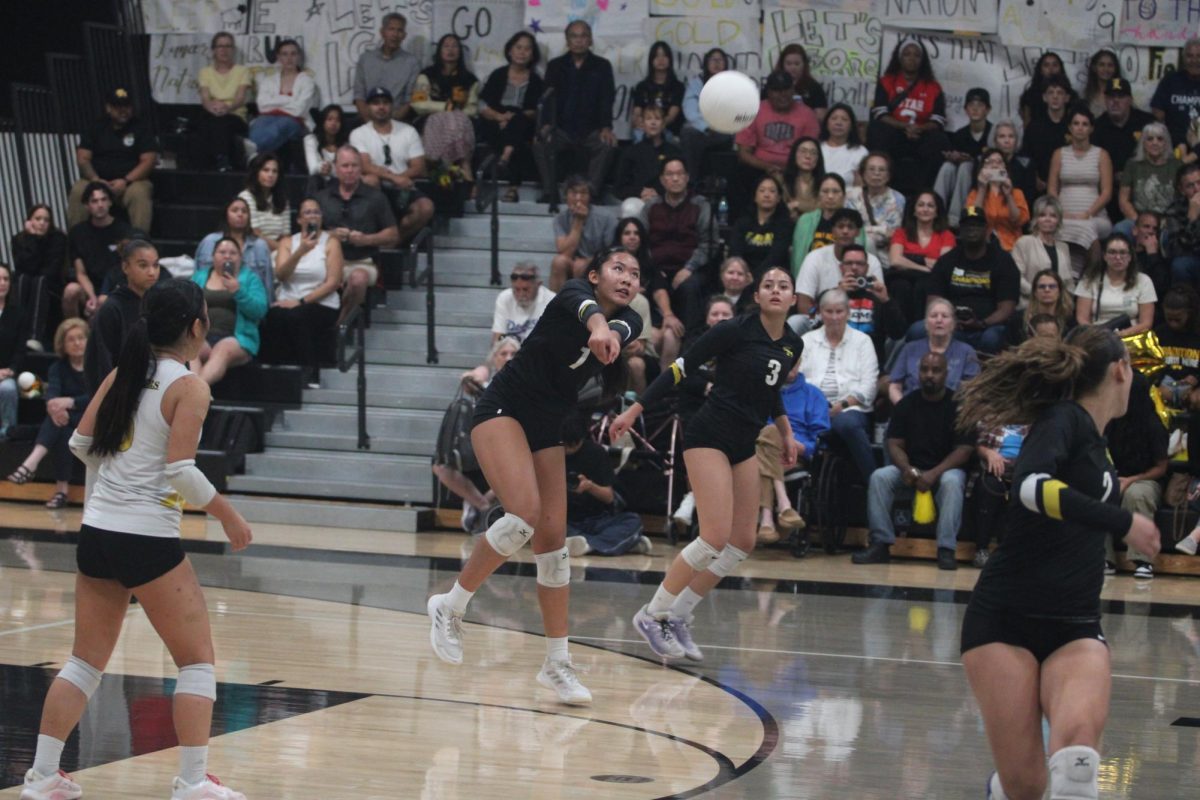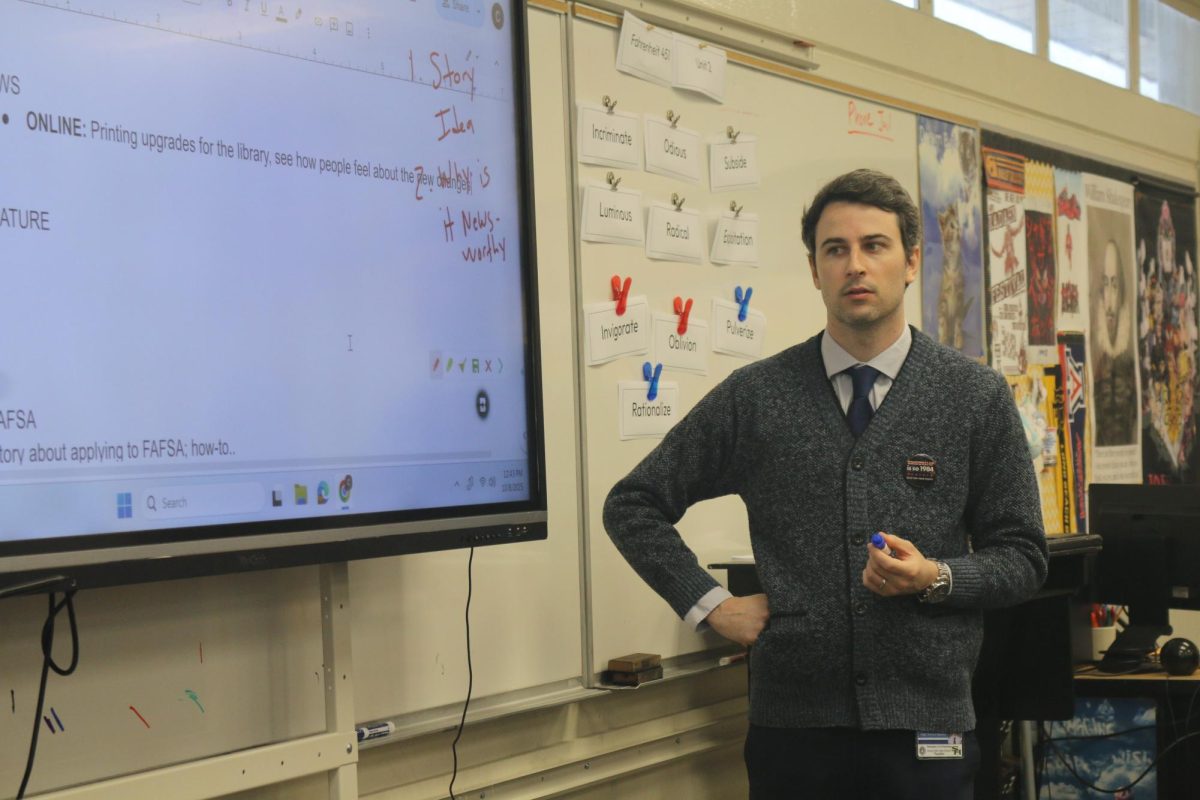*Names of elementary school children have been changed for confidentiality.
Sophomore Walfred Solis grew up with only his younger sister — a four-year age gap — prompting him to every so often wonder what life would be like if he had a male sibling looking up to him.
“I just thought that it might have been cool to have one because I could do things with him that I couldn’t have done with my sister, like play video games and play basketball,” Solis said.
So he had few reservations about signing up to volunteer for the Big Brothers Big Sisters of Orange County when someone from that organization was invited to speak to his classmates in his zero period Advancement Via Individual Determination [AVID] class. The program would call for high school students to volunteer one hour a week for 33 weeks to spend time after school with assigned younger children at one of 40 elementary school locations in Orange County, Ressel said.
After consulting with his mom later that night last August at the beginning of the 2024-2025 school year, Solis said he gained the confidence to fill out the organization’s Google Form link to sign up.
“She liked the idea because she wants me to do programs while I’m attending school, so she was on board with it,” said Solis, who, during the summer before he became a freshman, also gained experience working with younger children as an assistant teacher at his church, Iglesia Cuadrangular Palabra de Vida in Hawaiian Gardens.
Solis was among the 10 students here — two juniors and the rest sophomores — who joined Big Brothers Big Sisters’ after school program, which recently ended Tuesday, May 13, but will continue when the new school year starts. They opted to help out at Pacific Drive Elementary School in Fullerton, which is 3.2 miles away from Sunny Hills.
Each had nothing but positive responses about their experiences with their elementary-age students, commonly referred to as “Littles.”
“The kids [at Pacific Drive] didn’t have any major problems,” Solis said. “They were mostly there for some time after school; they would bring in homework, but the advisers were really pushing them to go to the program and have fun with [us] the Bigs.
“They are very energetic; they’re kind, but they’re not at-risk [students].”
Although the Littles do bring in homework, the program is not just an academic setting. It brings a chance for high school students to build relationships with the Littles, helping them relax and be themselves.
“I feel like each year it would be a different experience because each of the kids have a very unique personality,” sophomore Kirsten Ubungen, a Big at Big Brothers Big Sisters, said.
For many of the Bigs, being matched with a little brought them not only new personalities to get to know but also lessons on serving as a positive role model and supporting someone emotionally.
“It has taught me that I could always improve my relationships with little kids and the Littles, and I could really mentor somebody and be there for someone,” sophomore Jayleen Jimenez, another Big, said.
BIG IDEA, BIG IMPACT
With a 67-year history and centrally located in Santa Ana, Big Brothers Big Sisters of Orange County first created this service opportunity in 1958.
“Big Brothers was originally founded when a court clerk decided that young boys needed supportive adults to help them stay out of legal trouble,” Ressel said. “[It] was founded to provide youth with crucial social connections to support their choices and future success.”
According to the program’s official website, high school students who are willing to commit at least two hours every week throughout the whole year and want to develop leadership skills are good candidates to become a Big Brother or a Big Sister.
Its website also cites the following statistic that elaborates on why the Santa Ana-based group has reached out to high school students to become mentors to their elementary-age peers:
“… One-third of the nation’s youth are growing up without a mentor who can help [younger children] overcome challenges such as poverty, unstable housing, absentee parents and lack of access to educational resources. … With a mentor, youth are able to achieve milestones such as high school graduation, set postsecondary goals and strive for long-term success as they achieve their full potential,” according to one of the organization’s web pages.
Besides filling out an online form like Solis did, those interested in joining this mentorship effort will also undergo the following:
- Participation in a Zoom interview to answer questions from the organization.
- Wait for about a week to receive results from the organization.
- Upon approval, “Big” applicants must answer questions such as about family dynamics during another interview to be paired with a “Little.”
The organization can’t always guarantee that the mentor-mentee pair are of the same gender as they receive a higher number of applications from Big Sisters than Big Brothers, so there isn’t always a Big Brother available to match with their Little Brothers.
Since they want Littles who are excited about being mentored to start as soon as possible, rather than waiting for months to hopefully get a Big Brother match, they turn to the Big Sisters who are ready and able to help out.
For example, the 10 from Sunny Hills comprise only two boys, which meant that five of the eight girls got paired with a boy.
“I was okay with it and it was easy to adjust to since he’s just a little kid,” said junior Julia Kim, another Big. “They’re all kind of similar and it was easy to adjust to, even when I did not have a younger brother.”
In addition, the Little applicants also go through an interview process to be matched with a mentor for them.
According to the BBBSOC official website, the “Bigs” and “Littles” have interview processes after applying and are asked questions about their family to determine compatibility. The common traits shared between the “Big” and “Little” allow the two to relate and bond with each other, making the whole year with each other full of trust and connection.
“We pair up matches based on preference and availability,” senior recruitment and enrollment specialist Eileen Ressel said. “We do try to match students up based on gender identity because we know that shared experiences are important for building trust and great relationships.”
Before being matched, the accepted Bigs will receive via email a digital training booklet.
They will also be provided information about a volunteer orientation with their program specialist at their selected elementary school site.
Ressel said if students are not accepted, they will receive an email informing them that program officials are not able to accept and match them at this time, and she said she recommends waiting until the next school year or until any scheduling conflicts are resolved before reapplying.
FRINGE BENEFITS FOR VOLUNTEERS
“Bigs” have access to Big Brothers Big Sisters of Orange County’s college and career specialists who can meet with them individually to talk about their goals and how to reach them.
Ressel said that if there are volunteers who would like to meet with their college and career specialist, they can speak to their program specialist or enrollment specialist, and they will fill out a form to book the volunteers an appointment.
A part of the college and career program is a scholarship called “Big of the Year,” which is also available for those involved in Big Sisters Big Brothers
For “Bigs” who are in their senior year, Ressel said they are eligible to apply for a $2,500 scholarship — one to be awarded to a male 12th-grader and another to a female one.
Kim said she was previously unaware of such programs, but she plans to apply in her senior year.
“I didn’t know that that was a thing, but now that I know I’m gonna try to apply to every scholarship I can,” she said.
Ressel said seniors who have been a volunteer since the previous school year can apply for the Big of the Year scholarship with an online form that asks a few short essay questions. As of now, the form is not currently active and a new one is sent out yearly in October by Program Specialists.
Ressel said that Bigs find out during the program each spring from their program specialist if anyone from their volunteer site has won the Big of the Year award.
She said there is a private award luncheon held to honor the winners of the Big of the Year scholarship.
Ressel said the college and career program helps high school students:
- Make decisions regarding their plans for secondary education
- Supports them with college admissions process
- Provides experiences, information, and skills to explore potential careers and jobs
She said volunteers gain hands-on experience working with people as a weekly volunteer, which they can add to their resume.
They are also invited to consider their goals for their education, future, and career as they build skills and attend Leadership Summit workshops.
MENTOR-MENTEE EXPERIENCES
Solis said although his “Little” — a fourth-grade boy — did not have any major home life issues, the only challenge at first involved his energy level.
“He calmed down after we got to know each other,” he said.
One memory that stood out regarding what soothed his “Little” involved the appearance of a squirrel, he said.
“We had an activity where we went out to the playground and he got hit in his head, and I was with him, trying to calm him down and then we managed to do that by switching games,” Solis said. “But a kid stole his ball so he got sad again, so then we walked around, and we saw a little squirrel on the street and he just kind of calmed down.”
Junior Jimin Lee said her favorite memory was teaching Jerry* how to communicate his feelings to others because he couldn’t express them well.
“I feel like there are a lot of times when Jerry* isn’t in full control of his emotions,” said Lee, who doesn’t have any siblings like Solis. “There are a lot of times where he feels like he can’t speak through what he wants to say; so, I would lead him and say, ‘If you’re feeling sad, just say you’re feeling sad.’”
Beyond interacting with the Littles, the SH Bigs said participating in the organization taught them to learn more about themselves.
Sophomore Kirstin Ubungen said she learned to become more considerate of others.
“For my Little, he’s kind of more independent, and usually I like helping people, but I can’t force him to do what I want,” said Ubungen, who joined the program because she loved the idea of working with kids and always wanted a younger sibling. “It taught me to set my problems aside.”
She said has also benefited from her mentor experience.
“Although it sounds really simple, it teaches you to connect with people more and honestly helped me get out of my comfort zone,” the sophomore said.
Sophomore Ruby Nakamura said she learned the importance of being present and showing up both physically and emotionally for someone.
“It really opened my eyes up a lot because I’ve missed a lot [of meetings] because of sports so it’s a really big thing about communication and making sure that they don’t feel like I abandoned them, we have to have a consistency of attending,” Nakamura said.
WILL THEY RETURN FOR AN ENCORE?
Of the 10 volunteers this school year, six plan on continuing BBBSOC in the fall.
Ubungen said the program was rewarding as she learned lessons that she believes she couldn’t have learned elsewhere, and it provided her with the opportunity to be the big sister she dreamed of for someone else.
“It taught me to be more patient with myself and others, bringing me closer to my peers because I’m friends with other Bigs,” she said.
Kim said that her and Lee are likely to reapply in the future as they will be graduating high school soon.
“I don’t know yet, but probably not since we are going to be seniors,” Kim said.
While some mentors are preparing to move on, Solis said he is open to continuing his involvement with the program into the next school year. Although he said he doesn’t plan on pursuing a career that involves interacting with children, he said he doesn’t mind helping out.
“I do find it fun interacting with the kids, maybe I’ll take it as a hobby,” said the rising junior, adding the tutoring experience he had as a fourth grader at Richman Community Center in Fullerton.
“My mom thought I would be a good fit for being an assistant teacher at the church,” Solis said. “She knows that I’m good natured and good with kids.”
He said his experiences from being the assistant teacher at his church and being a tutor at the program at Richman had motivated him to join the program.
And what about that little brother he’s often thought about having so he can do guy activities with?
“We did talk about his favorite video games and played basketball and kickball,” Solis said.



